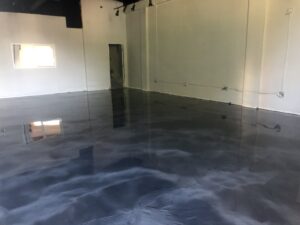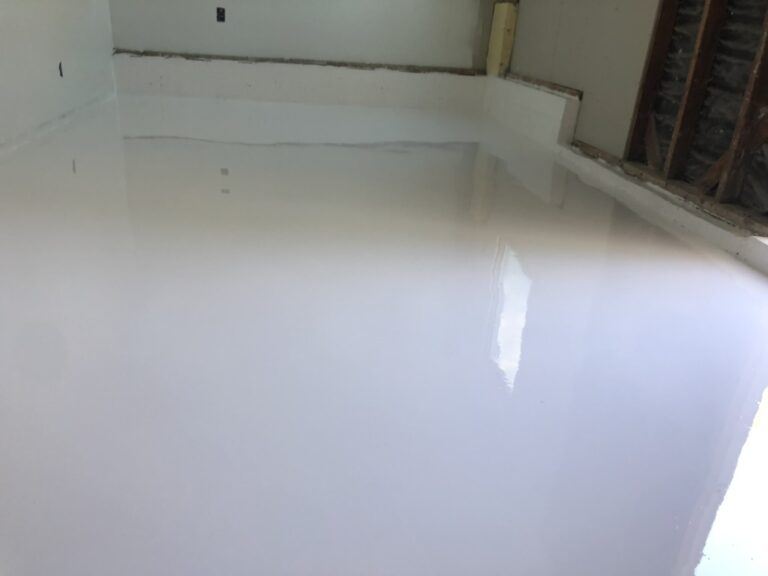Epoxy Floor Services JK Marble Maintenance
In today’s world, flooring is crucial in aesthetics and functionality within residential and commercial spaces.
Among the various flooring options available, epoxy floors have gained significant popularity due to their unique blend of durability, design flexibility, and low maintenance requirements.
This article delves into the transformative capabilities of epoxy floor services, exploring how they can enhance various environments, from garages to commercial establishments.
Epoxy flooring consists of a resin and a hardener, creating a solid composite material.
This flooring solution not only serves a practical purpose but also elevates the visual appeal of any space.
As we explore the different aspects of epoxy floors, we will uncover their advantages, applications, and maintenance practices, contributing to their growing consumer demand.
Durability and Longevity
Understanding the Strength of Epoxy Floors
One of the standout features of epoxy flooring is its exceptional durability.
Epoxy floors can withstand heavy foot traffic, impact, and even chemical spills when properly installed.
This resilience is primarily due to epoxy’s chemical composition; the fusion of resin and hardener creates a solid, impermeable surface that resists scratches and stains.
Epoxy flooring is an ideal choice for commercial settings where durability is paramount. It offers a robust solution that can endure years of wear and tear.
Epoxy flooring is also resistant to moisture and various chemicals, in addition to its impact resistance.
This makes it particularly suitable for environments such as warehouses, manufacturing plants, and laboratories, where spills and exposure to harsh substances are commonplace.
Epoxy floors’ longevity often leads to lower replacement costs, making them a cost-effective choice for homeowners and business owners.
Comparative Analysis with Other Flooring Options
Epoxy flooring’s advantages become even more apparent when compared to traditional flooring options such as vinyl, hardwood, or tile.
While hardwood may offer aesthetic appeal, it is far more susceptible to scratches, dents, and water damage.
Although vinyl flooring is affordable, it often lacks the durability and longevity that epoxy provides.
While visually appealing, tile floors can be prone to cracking and require extensive maintenance to keep the grout lines clean.
Epoxy floors outperform these alternatives in durability, installation time, and cost. Whereas hardwood and tile can involve lengthy installation processes, epoxy flooring can often be applied in a fraction of the time, resulting in less disruption to daily operations in commercial settings or home life.
This efficiency and durability position epoxy flooring as a superior choice compared to flooring materials.
Real-Life Examples of Durability
Numerous case studies highlight the remarkable durability of epoxy flooring across various industries.
For instance, a well-known automotive repair shop witnessed significant improvements after installing epoxy floors.
The floors resisted oil spills and heavy machinery, proving to be an ideal surface for such a demanding environment.
Additionally, many food processing plants have adopted epoxy flooring for its hygienic properties and resistance to bacteria.
This allows for easy cleaning and maintenance while ensuring compliance with health regulations.
These real-life applications showcase how epoxy floors meet and exceed the expectations of durability and functionality across various sectors.
As businesses and homeowners alike recognize the value of epoxy flooring, its popularity is expected to continue growing.
Design Flexibility
Variety of Colors and Finishes
One of the most enticing aspects of epoxy flooring is its extensive design flexibility.
With many colors and finishes available, consumers can easily select a style that complements their decor.
The options are virtually limitless, whether one prefers a sleek metallic finish, a glossy solid color, or a decorative flake design.
This variety allows for customization that meets the aesthetic needs of residential and commercial spaces.
The ability to customize color schemes and finishes means that epoxy flooring can be tailored to create a unique atmosphere.
For example, a vibrant color palette can enhance creativity in a workspace, while muted tones may evoke a sense of calm in a residential setting. This adaptability ensures that epoxy floors can be used in virtually any environment, making it a versatile choice for consumers.
Customizable Patterns and Styles
Beyond mere color selection, epoxy flooring can also be designed with various patterns and textures.
Consumers can opt for intricate designs, such as geometric patterns or logos, that can be seamlessly integrated into the flooring.
This level of customization is particularly beneficial for businesses looking to reinforce brand identity through their physical spaces.

Using stencils and templates during the installation process allows for creating personalized designs that make spaces uniquely their own.
Furthermore, epoxy can be textured to improve slip resistance, a vital feature for environments often exposed to moisture or spills.
Epoxy flooring combines aesthetics with safety, catering to visual appeal and practical functionality, addressing the diverse needs of different consumers.
Applications in Different Environments
Epoxy flooring has found its place in many settings, proving its versatility across residential and commercial applications.
Epoxy is commonly used in residential spaces, such as garages, basements, and kitchens. It offers a sleek, durable surface that can withstand daily wear.
Epoxy is a popular choice in modern homes because homeowners appreciate its ease of cleaning and aesthetic appeal.
On the commercial side, epoxy flooring has become a staple in warehouses, retail stores, and healthcare facilities.
Its ability to resist stains, chemicals, and heavy traffic makes it ideal for highly durable environments.
Many organizations have reported increased customer satisfaction and employee morale due to aesthetically pleasing and functional flooring.
Epoxy flooring’s adaptability ensures it can cater to diverse needs across different industries.
Easy Maintenance
Cleaning and Care Tips for Epoxy Floors
One significant advantage of epoxy flooring is its ease of maintenance.
Unlike other flooring materials, which require frequent waxing or special cleaning agents, epoxy floors can be cleaned with simple soap and water.
To keep the surface pristine, regular sweeping or dust-mopping to remove dirt and debris and occasional deep cleaning are typically all that is needed.
The impermeable nature of epoxy also means that spills can be wiped up without leaving a stain, contributing to a clean environment.
Avoid using abrasive cleaners or pads for optimal care, as they may scratch the surface. Instead, use a soft cloth or mop.
Applying a sealant every few years can help maintain the floor’s shine and increase its longevity.
Following these straightforward cleaning practices, consumers can ensure their epoxy floors remain attractive and functional for many years.
Long-Term Benefits of Low Maintenance
Epoxy flooring’s low maintenance requirements translate into significant long-term benefits.
Reduced maintenance time and costs can lead to increased productivity for businesses.
Employees can focus on their core tasks rather than spending time on extensive floor upkeep.
Conversely, homeowners can enjoy living spaces without worrying about floor damage or extensive cleaning routines.
Moreover, epoxy flooring’s durability makes it less likely to require repairs or replacements over time.
This factor contributes to the cost-effectiveness of choosing epoxy over other flooring options.
In the long run, the initial investment in epoxy flooring can yield substantial savings, making it an economically savvy choice for residential and commercial consumers.
Conclusion
In summary, epoxy flooring services are compelling for those seeking a durable, customizable, low-maintenance flooring solution.
Its unmatched strength and longevity, it stands out compared to traditional flooring materials.
The myriad design options and ease of maintenance further enhance its appeal, making it suitable for various environments, from homes to industrial facilities.
As the demand for high-quality flooring solutions grows, epoxy flooring remains at the forefront, offering both practicality and style.
By understanding the advantages and applications of epoxy flooring, consumers can make informed decisions that will ultimately enhance their spaces.
FAQs
1. How long does epoxy flooring last?
Epoxy flooring can last anywhere from 10 to 20 years or more, depending on the quality of the installation and the level of maintenance it receives.
2. Is epoxy flooring slippery?
While epoxy floors can be slippery when wet, they can be textured to enhance slip resistance, making them safer for high-traffic and moist environments.
3. Can epoxy flooring be installed over existing floors?
Yes, epoxy flooring can often be installed over existing concrete floors, provided the surface is adequately prepared and in good condition.
4. How do I repair scratches or damage on epoxy floors?
Minor scratches can often be buffed out or filled with an epoxy repair kit, while more extensive damage may require JK’s attention for proper repair.
5. Are there any environmental concerns with epoxy flooring?
Modern epoxy formulations are often low in volatile organic compounds (VOCs), making them more environmentally friendly.
However, to ensure safety, always check for certifications.
